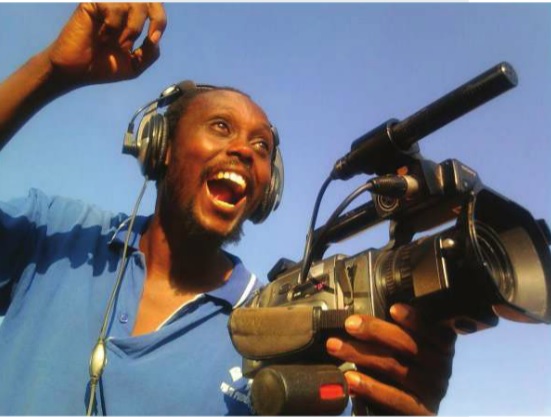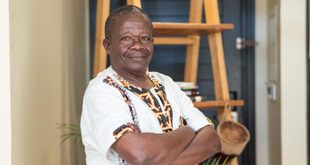
To those outside looking in, Mageye represents success. In reality, he is unhappy, especially about some TV stations that want film producers to give them their work free of charge.
“It is actually very difficult,” he said in an interview,” while our content in the film industry has continued to improve, TV owners are reluctant to purchase our productions in favour of foreign ones.”
He says that has hindered the growth in industry earnings and led to failure to create jobs.
But TV is not alone in shunning local productions. Even cinemas will not show them.
Eddie Nsubuga, the chairperson of the Uganda Federation of Movie Industries and owner of Cinemax says even cinema’s concentrate on foreign films since local ones are not in 3D – a system or effect used in a movie or object to provide three dimensions – width, length and depth.
Improving quality, audience
In spite of the challenges, the industry has people like Sister Dominic Dipio, a professor of literature and film at Makerere University in Kampala.
When she spoke at the Uganda Film Awards at the Serena International Conference Centre in Kampala on Aug.26 she said she was happy about this year’s awards. She said the quality of films produced in the country has greatly improved. She would know because she has been a judge for the Uganda’s Film Festival for four years.
She mentioned the appeal of the stories, cinematography, the graphic designs, and the sound, which she says has been an endemic challenge. She also mentioned the many talented actors and actresses who are creating illusions of reality that makes audiences identify them.
For Dipio, a film is memorable and impactful if it tells a great story; “a human story situated in the context of a specific culture”. Then there are people line Allen Atwine, a mother of two, who I met later. Atwine is a testament to what Sister Dipio is talking about as she is often glued to locally dramas on TV. Her favourite is titled `Deception’ which she often watches on her 14-inch television set with her two children in her dimly lit living room.
`Deception’ has the kind of human story that Sister Dipio would possibly like. It centers on a young married couple trying hard and failing to get a child. Despite that they are happy – until the husband’s mother moves into their house and does unspeakable things in the name of getting a grandchild.
She blames the wife for their childlessness and unleashes treacherous schemes and scandalous attacks day by day. This tests the couple; as the mother-in-law fights to kick the wife out of her marriage and the wife fights to keep it. Through the twists and turns of the drama, Atwine remains a fan with reservations.
“The truth is, this series may not be of very high quality,” she says, “but it at least tries to represents who we are in our communities.”
Atwine’s love for local productions, which are also known as Ugawood productions, typifies the extent to which they are slowly gaining traction among the population.
But if Ugandans, like Atwine, who go out of their way to watch local productions, thinks the producers appreciate their criticism, they are terribly mistaken.
Magara the producer does not like it when viewers like Atwine trash Ugandan productions. She says most critics barely know what they are talking about. To make her point, Magara; who teaches film and literature at Makerere University, gets academic.
When one is commenting on the quality of films produced locally, she says, they need to mind a number of questions: Who is determining the standards of arts? What is it being compared to /with? What is the cultural aspect of the story? Who is the targeted audience? Are there known theories to interpretation that do hinder/ facilitate interpretation? She mentions aspects like gender, social class, and experience as impacting on interpretation.
Unlike Magara, some directors like Matt Bish concede that whereas the quality of films has improved over the years, majority of them still falls short of the quality standards that the television stations expect.
Sister Dipio also says more time and creativity need to be invested to make the local films unique. She sees well produced Ugandan films becoming “the best windows for the rest of the world to have an experience of the country and its people at glance.
“Ugandan film makers should strive to become excellent actresses and film makers above anything else, then,” says Dipio, “the rest will follow.”
At the film awards ceremony, the UCC Executive Director Godfrey Mutabazi appealed to the government to put aside money to support the film industry. Until that happens, however, he is encouraging Ugandans to watch local productions.
“We must listen and watch what we own,” he said, “get a film made in Uganda and not Russia, India, China.” Atwine would possibly have cheered had she been there. But she was at home glued on to her TV, and `Deception’.
****
editor@independent.co.ug
 The Independent Uganda: You get the Truth we Pay the Price
The Independent Uganda: You get the Truth we Pay the Price


